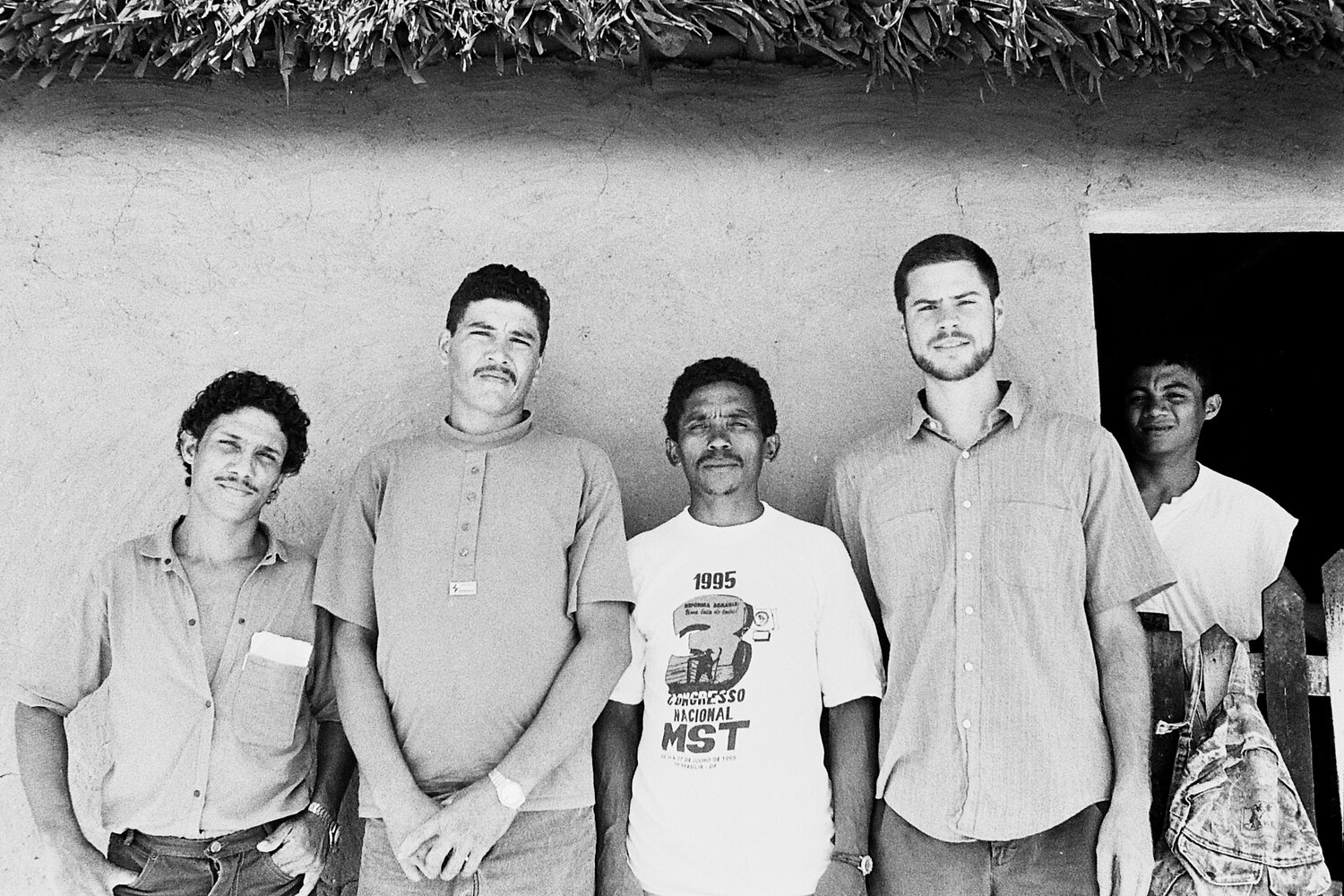- Oct 22, 2012
- 20,194
- 5,492
- 198
Leading organizations involved in climate change research, policy making and education
U.S. Environmental Protection Agency (EPA) - Climate Change Science
This section of the EPA website offers scientific information and data on climate change in the past and projections for the future. Specific information about the U.S. government's role in conducting and evaluating science as well as EPA's role in these efforts can be found on the Climate Change Science Program and EPA Research and Assessment pages in the Policy section.
NOAA Education - Climate Change and Our Planet
This collection of resources from the National Oceanic and Atmospheric Administration (NOAA) are designed for teachers to use in the classroom or as background reference material.
Intergovernmental Panel on Climate Change (IPCC)
The Intergovernmental Panel on Climate Change was established by the United Nations Environment Programme (UNEP) and the World Meteorological Organization (WMO) to provide objective reports on climate change and its potential environmental and socio-economic consequences. Geography has played a central role in the IPCC’s activities. Dr. Thomas Wilbanks, past president of the AAG and recipient of numerous honors in the field of geography, served as lead author of a chapter of the Fourth Assessment Report which was awarded the Nobel Prize in 2007.
National Center for Atmospheric Research (NCAR)
NCAR provides the university science and teaching community with the tools, facilities, and support required to perform innovative research. Through NCAR, scientists gain access to high-performance computational and observational facilities, such as supercomputers, aircraft and radar - resources researchers need to improve human understanding of atmospheric and Earth system processes. NCAR also houses the Geographical Information Systems (GIS) Strategic Initiative, an interdisciplinary effort to foster collaborative science, spatial data interoperability, and knowledge sharing with GIS, within the field of atmospheric research.
Center for Remote Sensing of Ice Sheets (CReSIS)
CReSIS was established by the NSF in 2005 and is headquartered at the University of Kansas. The Center uses a variety of geographic tools and technologies (including Geographic Information Systems, Remote Sensing, and spatial statistics) to complement its goal of measuring and predicting the response of sea level change to the mass balance of ice sheets in Greenland and Antarctica.
National Climate Data Center (NCDC)
NCDC is the world's largest active archive of weather data. NCDC produces numerous climate publications and responds to data requests from all over the world.
World Meteorological Organization
The World Meteorological Organization (WMO) is a specialized agency of the United Nations. It is the UN system's authoritative voice on the state and behavior of the Earth's atmosphere, its interaction with the oceans, the climate it produces and the resulting distribution of water resources.
United Nations Environment Programme (UNEP), Climate Change
The UNEP Climate Change website serves as a gateway to UNEP activities related to adaptation, mitigation, science, and communication/outreach on the effects of climate change, as well as programs to reduce emissions from deforestation and degradation of ecosystems.
United Nations Framework Convention on Climate Change (UNFCCC)
The UNFCCC supports UN bodies involved in the climate change process. This UNFCCC website contains numerous resources, such as introductory and in-depth publications, the official UNFCCC and Kyoto Protocol texts and a search engine to the UNFCCC library.
Pew Center on Global Climate Change
The Pew Center on Global Climate Change brings together business leaders, policy makers, scientists, and other experts to bring a new approach to a complex and often controversial issue. The Center conducts analyses of key climate issues, works to keep policy makers informed, engages the business community in the search for solutions, and reaches out to educate the key audiences.
Food and Agriculture Organization (FAO) of the United Nations – Climate Change
FAO's activities in climate change are spread over all departments and cover all agricultural sectors (i.e. agriculture, livestock, forestry, fisheries) as well as highly cross-sectoral topics (e.g. bioenergy, biodiversity, climate risk management). The Interdepartmental Working Group on Climate Change and the Environment, Climate Change and Bioenergy Division (NRC) play an important role in coordinating these activities.
National Snow and Ice Data Center (NSIDC)
The NSIDC supports research on snow, ice, glaciers, frozen ground, and climate interactions that make up Earth's cryosphere. Dr. Mark Serreze, NSIDC Director, has carried out significant geographic research on climate warning in the Arctic and its implications.
International Geosphere-Biosphere Programme (IGBP)
IGBP is a research programme that studies the phenomenon of Global Change. IGBP provides scientific knowledge to improve the sustainability of the living Earth. IGBP studies the interactions between biological, chemical and physical processes and interactions with human systems and collaborates with other programmes to develop and impart the understanding necessary to respond to global change.
U.S. Environmental Protection Agency (EPA) - Climate Change Science
This section of the EPA website offers scientific information and data on climate change in the past and projections for the future. Specific information about the U.S. government's role in conducting and evaluating science as well as EPA's role in these efforts can be found on the Climate Change Science Program and EPA Research and Assessment pages in the Policy section.
NOAA Education - Climate Change and Our Planet
This collection of resources from the National Oceanic and Atmospheric Administration (NOAA) are designed for teachers to use in the classroom or as background reference material.
Intergovernmental Panel on Climate Change (IPCC)
The Intergovernmental Panel on Climate Change was established by the United Nations Environment Programme (UNEP) and the World Meteorological Organization (WMO) to provide objective reports on climate change and its potential environmental and socio-economic consequences. Geography has played a central role in the IPCC’s activities. Dr. Thomas Wilbanks, past president of the AAG and recipient of numerous honors in the field of geography, served as lead author of a chapter of the Fourth Assessment Report which was awarded the Nobel Prize in 2007.
National Center for Atmospheric Research (NCAR)
NCAR provides the university science and teaching community with the tools, facilities, and support required to perform innovative research. Through NCAR, scientists gain access to high-performance computational and observational facilities, such as supercomputers, aircraft and radar - resources researchers need to improve human understanding of atmospheric and Earth system processes. NCAR also houses the Geographical Information Systems (GIS) Strategic Initiative, an interdisciplinary effort to foster collaborative science, spatial data interoperability, and knowledge sharing with GIS, within the field of atmospheric research.
Center for Remote Sensing of Ice Sheets (CReSIS)
CReSIS was established by the NSF in 2005 and is headquartered at the University of Kansas. The Center uses a variety of geographic tools and technologies (including Geographic Information Systems, Remote Sensing, and spatial statistics) to complement its goal of measuring and predicting the response of sea level change to the mass balance of ice sheets in Greenland and Antarctica.
National Climate Data Center (NCDC)
NCDC is the world's largest active archive of weather data. NCDC produces numerous climate publications and responds to data requests from all over the world.
World Meteorological Organization
The World Meteorological Organization (WMO) is a specialized agency of the United Nations. It is the UN system's authoritative voice on the state and behavior of the Earth's atmosphere, its interaction with the oceans, the climate it produces and the resulting distribution of water resources.
United Nations Environment Programme (UNEP), Climate Change
The UNEP Climate Change website serves as a gateway to UNEP activities related to adaptation, mitigation, science, and communication/outreach on the effects of climate change, as well as programs to reduce emissions from deforestation and degradation of ecosystems.
United Nations Framework Convention on Climate Change (UNFCCC)
The UNFCCC supports UN bodies involved in the climate change process. This UNFCCC website contains numerous resources, such as introductory and in-depth publications, the official UNFCCC and Kyoto Protocol texts and a search engine to the UNFCCC library.
Pew Center on Global Climate Change
The Pew Center on Global Climate Change brings together business leaders, policy makers, scientists, and other experts to bring a new approach to a complex and often controversial issue. The Center conducts analyses of key climate issues, works to keep policy makers informed, engages the business community in the search for solutions, and reaches out to educate the key audiences.
Food and Agriculture Organization (FAO) of the United Nations – Climate Change
FAO's activities in climate change are spread over all departments and cover all agricultural sectors (i.e. agriculture, livestock, forestry, fisheries) as well as highly cross-sectoral topics (e.g. bioenergy, biodiversity, climate risk management). The Interdepartmental Working Group on Climate Change and the Environment, Climate Change and Bioenergy Division (NRC) play an important role in coordinating these activities.
National Snow and Ice Data Center (NSIDC)
The NSIDC supports research on snow, ice, glaciers, frozen ground, and climate interactions that make up Earth's cryosphere. Dr. Mark Serreze, NSIDC Director, has carried out significant geographic research on climate warning in the Arctic and its implications.
International Geosphere-Biosphere Programme (IGBP)
IGBP is a research programme that studies the phenomenon of Global Change. IGBP provides scientific knowledge to improve the sustainability of the living Earth. IGBP studies the interactions between biological, chemical and physical processes and interactions with human systems and collaborates with other programmes to develop and impart the understanding necessary to respond to global change.





